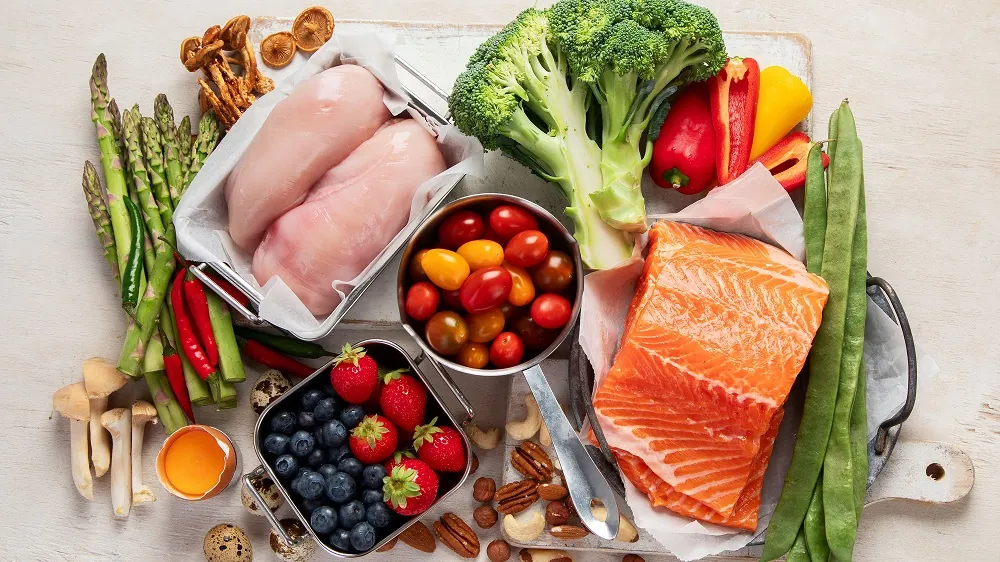Top 9 Weight Loss Diet Plans to Follow in 2025.
As we get closer to 2025, the search for the perfect weight loss strategy keeps changing, influenced by fresh research, new trends, and tech advancements. While we can’t say for sure what the future holds, we can take a look at what’s emerging and the continued popularity of certain diets.
In this piece, we’ll highlight 9 diet plans that might take center stage in the weight loss scene by 2025.
Just remember, these predictions are grounded in what we know now, and the future could surprise us with even more breakthroughs.

- AI-Personalized Diet Plans
With the rapid growth of technology, AI-powered health solutions are gaining traction. By 2025, we could see artificial intelligence taking a bigger part in creating personalized diet plans. These AI tools might look at your genetic makeup, lifestyle habits, and health objectives to suggest customized meal plans that help with weight loss.
Why it could be effective: AI has the ability to deliver super personalized nutrition guidance, which can make weight loss strategies more successful by focusing on individual needs.
What to look forward to: In 2025, anticipate AI-driven applications that monitor your progress, tweak your diet on the fly, and offer specific advice on what to eat and how much.
- Sustainable Keto Diet
The ketogenic diet has gained a lot of traction, but its rigid nature can be tough for many to stick with over time. By 2025, we might see a revamped version of keto that highlights healthier fats, nutrient-rich veggies, and lean proteins.
Why it might succeed: By toning down the strictness and creating a more balanced approach, it could be easier for folks to adopt without compromising their health.
What to look forward to: Keto 2.0 or Sustainable Keto will probably center around whole foods and provide more flexibility while still encouraging fat-burning ketosis.
- Intermittent Fasting with a Twist
Intermittent fasting (IF) is still one of the top ways to shed pounds. By 2025, we might see some fresh takes on it, mixing fasting with other techniques like time-restricted eating paired with mindful eating habits.
Why it might be effective: Intermittent fasting helps cut down on calorie consumption while boosting fat loss. Being mindful can guide folks to pick better food options when they do eat.
What’s on the horizon: Look out for intermittent fasting plans that weave in psychological aspects, motivating people to take their time and really savor their meals during eating times.
- Plant-Based Diets with a Protein Boost
Plant-based diets are on the rise, but one hurdle has been getting enough protein, especially for those who like to stay active. By 2025, we might see new plant-based protein options—like lab-grown meat or innovative protein powders—becoming common, making it easier for people to enjoy a protein-rich plant-based diet.
Why it could work: Plant-based diets are generally low in calories and packed with fiber, which helps keep you feeling full. With the addition of more protein sources, these diets could appeal to a broader range of people, including athletes and fitness lovers.
What to expect: You’ll find more convenient and sustainable plant-based protein choices that can compete with traditional animal-based proteins in quality and availability.
RELATED: Best and Most Affordable Gym Memberships for 2025.
- Mediterranean Diet: The Everlasting Trend
The Mediterranean diet has consistently ranked as one of the healthiest diets, focusing on whole foods, healthy fats, lean proteins, and plenty of fruits and vegetables. By 2025, we expect it to remain a staple for those seeking a balanced, heart-healthy approach to weight loss.
Why it could work: The Mediterranean diet is less about restriction and more about moderation, making it easy to follow long-term.
What to expect: In 2025, look for variations of the Mediterranean diet that incorporate local and seasonal ingredients, adapting to regional preferences.

- Glycemic Index (GI) Diet Evolution
The low-glycemic index (GI) diet is all about eating foods that don’t spike your blood sugar too much, which helps keep hunger in check and prevents overeating. By 2025, we might see this diet getting even more tailored, with suggestions based on how your body reacts to carbs.
Why it could work: Keeping your blood sugar stable is crucial for controlling cravings and maintaining consistent energy, which makes it simpler to follow a diet.
What to expect: Customized GI diets that are fine-tuned to your unique blood sugar reactions, giving you better guidance on what to eat.
- Tech-Enhanced Calorie Counting
Calorie counting has been a go-to strategy for losing weight, but by 2025, we could see some cool tech advancements that make it way easier and more precise. Imagine smart forks, wearable sensors, and AI food scanners changing the game for how we keep tabs on our calorie consumption.
Why it could be effective: Keeping an accurate count of calories helps folks stay on track and make better food choices, but the current methods can be a drag. With new tech, tracking calories might become a breeze and way more user-friendly.
What to look forward to: Gadgets that automatically record your meals, give you instant feedback, and even suggest portion tweaks based on how you’re doing.
- Hormone-Balancing Diets
In 2025, we might see hormone-balancing diets becoming super popular, aimed at keeping insulin, cortisol, and leptin levels in check to help with weight loss. These diets will likely highlight foods that fight inflammation, boost sleep quality, and support overall hormonal health.
Why it could be effective: When hormones are out of whack, it can really mess with weight loss, causing tiredness, cravings, and even weight gain. By adjusting your diet to balance hormones, you could improve fat burning and feel more energized.
What to look forward to: Expect a spotlight on anti-inflammatory foods like leafy greens, berries, and omega-3-rich fats, along with stress-busting activities like yoga and meditation.
- Microbiome-Focused Diets
Gut health is gaining a lot of attention lately, and by 2025, we might see microbiome-focused diets really take off. These diets highlight the importance of prebiotic and probiotic foods that help maintain a healthy gut, which is now more connected to weight control and overall wellness.
Why it could work: A balanced gut microbiome can lead to better digestion, enhanced metabolism, and lower inflammation—key factors for shedding pounds.
What to expect: Customized microbiome diets that come from gut testing, featuring meal plans designed to enhance your unique gut flora.

As we approach 2025, the weight loss landscape is poised for exciting innovations. With the rise of AI-driven personalized diets, sustainable keto, and plant-based options, the future looks brighter than ever for those looking to shed pounds effectively. Techniques like intermittent fasting, hormone-balancing diets, and microbiome-focused approaches will provide tailored solutions for individual needs, while advancements in tech will make tracking progress easier and more accurate.
RELATED: Best Fitness Apps to Try in 2025.
Whether you’re seeking flexibility, sustainability, or a science-backed strategy, these emerging diets offer promising options to help people achieve lasting health and wellness. The future of weight loss is both dynamic and full of potential.




